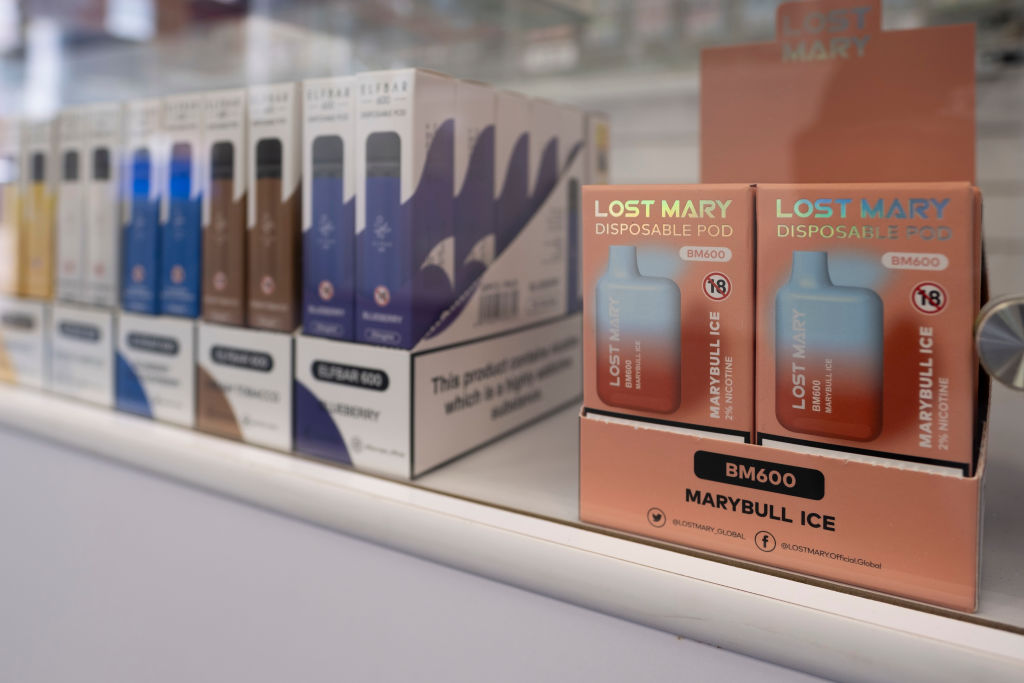
The U.K. government announced a plan on Monday to ban the sale of disposable vapes, in an attempt to curb the rise in vaping among children. The plan would also force companies to use plain packaging and place restrictions on flavors sold in an effort to make the products less appealing to children. It would also place restrictions on how vapes are advertised in shops.
“The long-term impacts of vaping are unknown and the nicotine within them can be highly addictive, so while vaping can be a useful tool to help smokers quit, marketing vapes to children is not acceptable,” Prime Minister Rishi Sunak said in a statement. He stressed that adult smokers aiming to quit would still be able to access vape kits.
A spring 2023 report from Action on Smoking and Health found that the proportion of children experimenting with vaping had grown by 50 percent year-over-year. The proportion of 11 to 17-year-old people who vape has increased almost nine times in the last 2 years, the government says, noting that disposable vapes have been a “key driver” in the rise.
The change is expected to go into effect by the end of this year or early 2025, and is the latest effort by the government to bring about “the first smokefree generation.” In October, the government announced plans to pass a law that would prevent those born on or after Jan. 1, 2009 from legally buying tobacco in their lifetime.
The U.K. is not the first country to introduce the idea of banning disposable vapes. Australia began banning the import of disposable e-cigarettes earlier this month, citing concerns over teens’ health. In December, France’s National Assembly unanimously approved a bill to ban the products to protect young people and reduce environmental impacts.
In December, the World Health Organization (WHO) urged all governments to ban the sale of vapes or impose measures that would make them less appealing to the general population—banning flavors, limiting the concentration of nicotine, or taxing the product.
“There is an alarming increase in the use of e-cigarettes among children and young people with rates exceeding adult use in many countries,” said Dr. Ruediger Krech, WHO Director for Health Promotion.
More Must-Reads From TIME
- The 100 Most Influential People of 2024
- How Far Trump Would Go
- Scenes From Pro-Palestinian Encampments Across U.S. Universities
- Saving Seconds Is Better Than Hours
- Why Your Breakfast Should Start with a Vegetable
- 6 Compliments That Land Every Time
- Welcome to the Golden Age of Ryan Gosling
- Want Weekly Recs on What to Watch, Read, and More? Sign Up for Worth Your Time
Write to Simmone Shah at simmone.shah@time.com